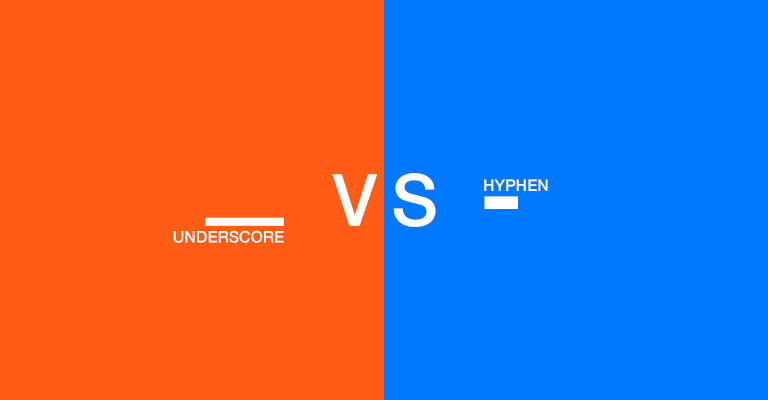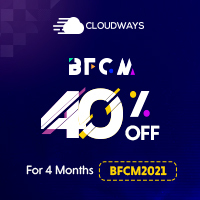What Should Be Preferred in URLs – Dash or Underscore?
- AbdurRahman Lakhani
- January 17, 2017

[dropcap]T[/dropcap]he struggle to improve the URL structure never ends as discoveries and findings are made that keep negating the previous standards. The use of dashes and underscores in web addresses has always been a controversial topic until Google recommended the hyphens over underscores in guidelines.
The content guideline states that:
The URL http://www.example.com/green-dress.html is much more useful to us than http://www.example.com/greendress.html. We recommend that you use hyphens (-) instead of underscores (_) in your URLs.
In light of the above statement, most developers and marketers consider the issue resolved, whereas most programmers are still comfortable with the use of underscores.
It could be that Google is more inclined to considering the ease of a layman rather than programmers which is why dashes (-) are the preferred word separators in the URL. The following are some of the justifications in support of what Google has finalized, as they have not given any explanation for it.
Familiarity
Recent advancements in technology revolve around the common man. People are more familiar with a hyphen (or dash) than an underscore. So if you want customers to type the URL with ease, then the preferred link structure should be https://www.store.com/baby-garments rather than https://www.store.com/baby_garments. It can be regarded as a friendly URL. As you can see, a layman cannot recognize the underscore used in the second URL. All the shopping carts have a friendly urlstrtucure e.g. Magetno, Opencart. At the same time, some other shopping carts don’t have such structure e.g. PrestaShop where
As evident, a layman cannot recognize the underscore used in the second URL. All the shopping carts have a friendly URL structure, for e.g. Magento and Opencart. At the same time, some other shopping carts don’t have such structure, for e.g., PrestaShop, where PrestaShop SEO friendly URL module is used to make it more user and search engine friendly.
The hyphen sign is also suggested because of its regular use in our written language. Underscore, on the other hand, is a purely computer related sign. Users can easily type a minus sign between the words and reach your web page rather than type with a combination of the shift button.
Readability
Word separators are used in the URLs to enhance readability. A keyword or phrase that is added to a link without any space would be hard to read, of course. For example, https://www.store.com/babygarments is quite ambiguous.
If you need to separate the words, you can write ‘baby garments’ and the URL will appear as https://www.store.com/baby%20garments. Even though it does split the phrase, it compromises the readability of your web address.
Once again, you can compare the use of a dash, i.e. https://www.store.com/baby-garments which is more appealing, precise and easy to remember.
Don’t forget that search engines take the readability of a URL into account as well. Google treats dashes as word separators and underscores as word joiners. For example, /toddlers_shoes/ is crawled as /toddlersshoes/, which is not a threat to search engine visibility but not recommended by marketers.
From the Aspect of SEO
As far as SEO is concerned, marketers knew that Google may penalize URLs for the use of hyphens, which is not explicitly denied, as Matt Cutts – a senior software engineer working in Google – declared in a post. You can read it in detail here.
So there is no harm in using dashes in your URLs. In fact, they are preferred over underscores and both these special characters are dealt with separately. Most marketers recommend the use of dashes for effectively optimizing URLs.
According to the above discussion, for an underscore, the search bot may show https://www.store.com/baby_garments in the SERPs for a related query like ‘baby_garments’ or ‘babygarments,’ whereas for a hyphen, it ranks https://www.store.com/baby-garments against the keywords including the ‘baby’, ‘garments’, and ‘baby garments’.
How the Debate Started and Came to an End?
Matt Cutts is a renowned software engineer at Google and considered an authentic source for algorithmic changes and how robots scan URLs. The debate started back in 2007 when Matt left a comment which advocated the perception among marketers, bloggers, and affiliates that underscores are considered word separators.
Soon after the misconception, Matt rectified his mistake in his blog and denied the fact that he has equated underscores with hyphens. It further stated that there is no need to switch domains to hyphenated URLs, whereas beginners should start using hyphens as the preferred word separator.
Following the same concept, he reaffirmed it in 2009 and 2010 in a video (https://www.youtube.com/watch?v=7Hk5uVv8JpM&feature=player_embedded). The video was clear on the stance that underscores are not word separators, and they can be replaced with hyphens for higher search engine visibility.
Finally, the debate concluded with Matt’s new video in 2011, which confirmed that hyphens play a vital role in structuring URLs for SEO, and that is true for a foreseeable future or until a major change occurs in search engine algorithms.
Conclusion
After going through the release of authentic information, there is no point in choosing underscores over hyphens, relying on self-projected ideas and perceptions. Any logic for readability and familiarity seems to be void when there is a definite answer from the industry experts.
Matt concluded that there is a difference of ranking between the two, which may be negligible for some experts, but it exists. He also said that users who have already established their businesses over the URLs that include underscores do not have to worry, because with 301 redirects they can avail the same link juice along with all the benefits associated with hyphenated URLs.
Author Bio
Alastair Brian writer from “FMEModules” – a brand well known for top of the line reliable PrestaShop Add-ons, themes, extensions and services. Follow him on Twitter, LinkedIn.

